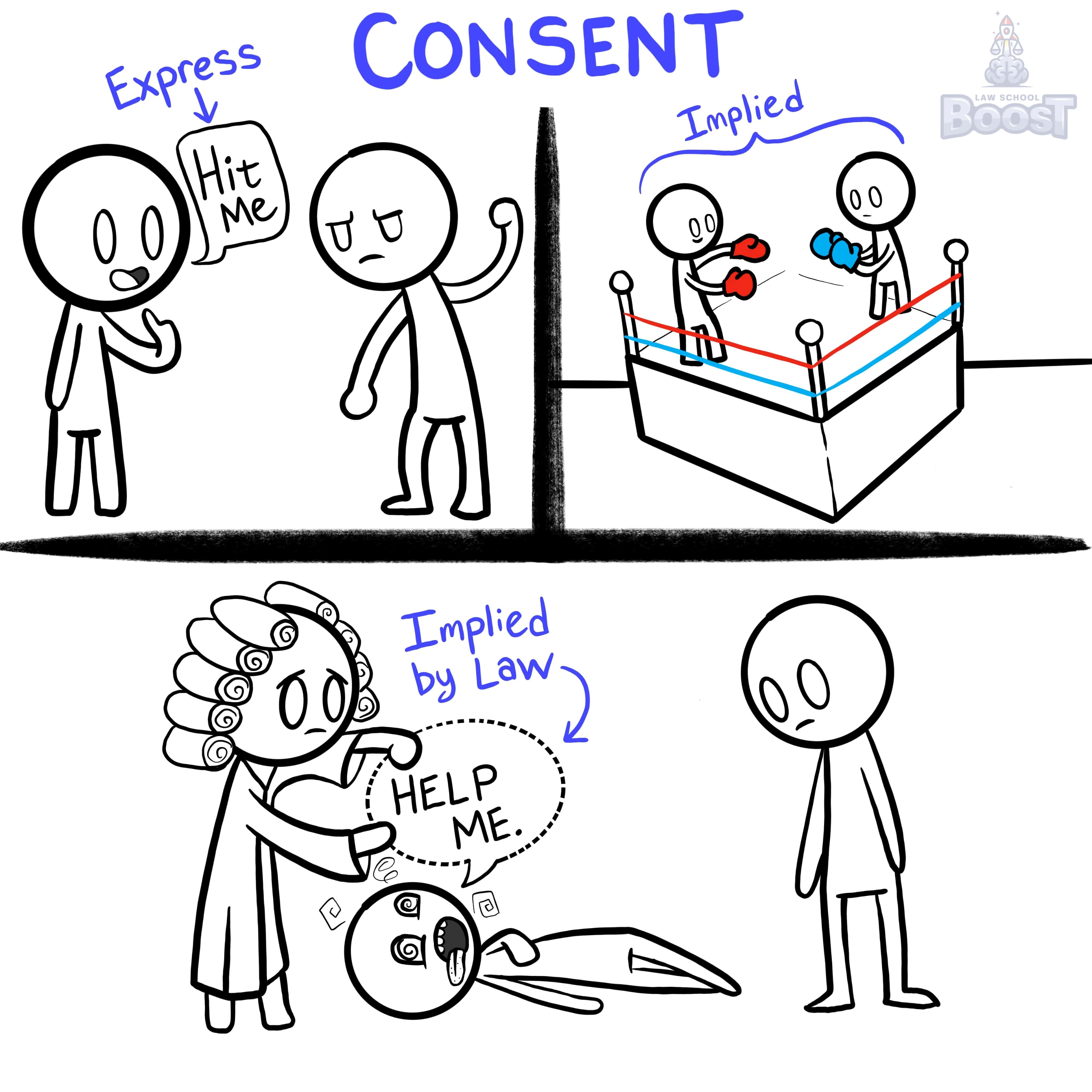👀
Torts • Defenses to Intentional Torts
TORT#014
Legal Definition
Consent is implied by law in extreme circumstances, like where it is necessary to save one's life.
Plain English Explanation
People generally want to live. In fact, people generally want to live so much that when they are unable to provide clear consent in situations that risk their life, the law is willing to let people assume that they want someone—anyone—to help them if it means saving their life.
This is why "do not resuscitate" orders exist. Because without clear, obvious, legal orders telling others to not try to save your life, you are implying that you want your life to be saved. In other words, the law assumes that every person wants to be saved by default.
This is why "do not resuscitate" orders exist. Because without clear, obvious, legal orders telling others to not try to save your life, you are implying that you want your life to be saved. In other words, the law assumes that every person wants to be saved by default.
Hypothetical
Hypo 1: Bob hates his life. He dreams of the sweet embrace of death. One day, while Bob is eating in a restaurant, he begins to choke on food. He falls over in his chair and, just as he feels himself slipping away, Sam rushes in to the rescue and performs a violent Heimlich maneuver, which clear's Bob's airway passage while simultaneously causing severe bruising and rib fractures. Bob is furious. Result: Sam had implicit consent to save Bob's life because failing to do so would have meant Bob dying.
Hypo 2: Bob hates Sam. He has told him never to lay a foot on his property. One day, while Sam is walking by Bob's house, he realizes there is a raging fire inside the living room. Sam runs up to Bob's house and realizes that Bob is passed out on the floor. Sam breaks down Bob's antique door, scoops up Bob, and drags him out of danger from the flames. When Bob awakes, he is furious to find out Sam is the one who saved him, and upset at the damage caused to his property. Result: Once again, Sam had implicit consent to enter Bob's property, and even cause damage to it, in order to save Bob's life.
Hypo 2: Bob hates Sam. He has told him never to lay a foot on his property. One day, while Sam is walking by Bob's house, he realizes there is a raging fire inside the living room. Sam runs up to Bob's house and realizes that Bob is passed out on the floor. Sam breaks down Bob's antique door, scoops up Bob, and drags him out of danger from the flames. When Bob awakes, he is furious to find out Sam is the one who saved him, and upset at the damage caused to his property. Result: Once again, Sam had implicit consent to enter Bob's property, and even cause damage to it, in order to save Bob's life.
Visual Aids

Related Concepts
In assessing a tort against property, what is a private necessity?
In assessing a tort against property, what is a public necessity?
In assessing a tort against property, what is necessity?
What is consent and its limitations?
What is the shopkeeper's privilege?
When is consent implied?
When is defense of others proper?
When is defense of property proper?
When is express consent not valid?
When is self-defense proper?
When may an actor recapture a chattel?


